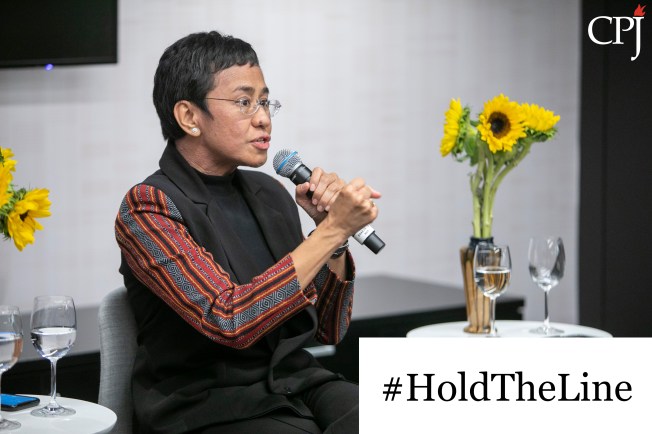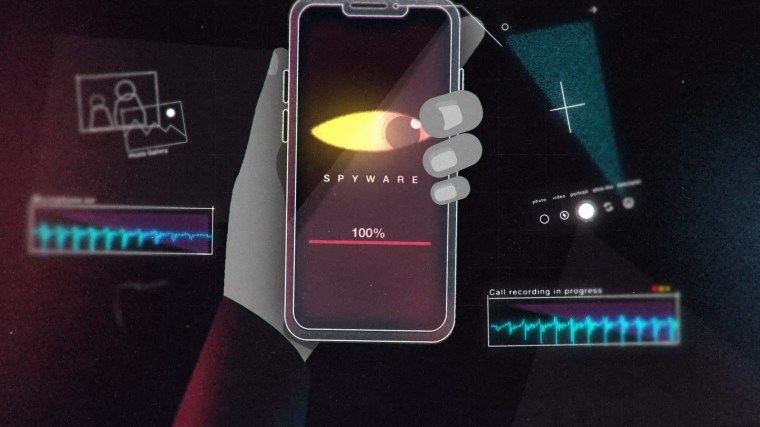The Torch is a weekly newsletter from the Committee to Protect Journalists that brings you the latest press freedom and journalist safety news from around the world. Subscribe here.
It’s The Torch’s fourth anniversary! Sign up here to get the newsletter in your inbox.
CPJ released a new report Thursday, “Zero-click Spyware: Enemy of the press,” about how zero-click surveillance threatens reporters, sources, and global press freedom. The report explains the insidious nature of spyware, its existential threat to journalists, and how it has caused fear and disruption in the lives and work of journalists around the world. Spyware technology “can dissuade journalists from reporting on critical stories or discourage would-be sources from coming forward, carving a hole into the very fabric of journalism,” says Gypsy Guillén Kaiser, CPJ’s advocacy and communications director.
The report includes numerous interviews with journalists, tech experts, and press freedom advocates about the scale and scope of the problem—and what, if anything, can be done to fight it.
CPJ calls for export control listings and targeted sanctions to be enacted against those who have spied on journalists and the barring of all government agencies known to attack press freedom or lacking regulatory resources to purchase spyware. Critically, all governments should join the Export Controls and Human Rights Initiative to build consensus for global regulatory action.
- Hungarian journalists targeted by spyware have little hope EU can help — By Attila Mong, CPJ Europe representative
- In India’s hardest-hit newsroom, surveilled reporters fear for their families and future journalists — By Kunal Majumder, CPJ India representative
- For Mexican journalists, President López Obrador’s pledge to curb spyware rings hollow — By Jan-Albert Hootsen, CPJ Mexico representative
- In Morocco, journalists – and their families – still struggle to cope with spyware fears — By CPJ MENA Staff
- Here’s what world leaders must do about spyware — By David Kaye, a clinical professor of law at the University of California, Irvine, and a former U.N. Special Rapporteur on the promotion and protection of the right to freedom of opinion and expression
- CPJ’s recommendations to protect journalists against spyware
- “To persecute any critical voice”: Jailed Guatemalan journalist José Rubén Zamora’s son on his father’s arrest. Watch a video on the case here
- Belarusian journalists detained, forced to make “confession” videos
- Vietnam transfers International Press Freedom Award winner Pham Doan Trang to remote prison facility
- Voice of America reporter Sithu Aung Myint sentenced to three years in prison in Myanmar
- Hong Kong internet radio host Edmund Wan Yiu-sing sentenced to 32 months in prison
- Kazakh outlet Orda, staff subjected to months of threats, online harassment, cyberattacks
- Two journalists arrested over criminal complaints in Iraqi Kurdistan
- Two armed attackers shoot at journalist Erick Niño’s home, office in Colombia
- Somali intelligence personnel arrest press rights advocate Abdalle Ahmed Mumin
- DRC journalist Gauthier Sey Tshiang sentenced to one year in prison, fined over reports on public official
- Zimbabwean authorities charge journalist Hope Chizuzu under cybercrime law
- Israel Defense Forces shoot, injure two Palestinian journalists in Nablus
- CPJ submits report on Brazil to United Nations Universal Periodic Review
Spotlight

Philippine President Ferdinand Marcos Jr. should immediately withdraw all charges and cases against Maria Ressa, her co-accused, and her Manila-based news outlet Rappler, said the Hold The Line Coalition, which comprises more than 80 organizations around the world, including CPJ, on October 12.
On Monday, the Philippine Court of Appeals rejected Maria Ressa’s motion for a reconsideration of her 2020 conviction on a trumped-up charge of criminal cyber libel. After a two-year struggle to overturn her conviction, all that stands between Ressa’s freedom and a lengthy prison sentence is a final appeal to the Supreme Court, and the government’s political will. Watch a video of Ressa, who is a Nobel laureate and CPJ’s 2018 Gwen Ifill Press Freedom Awardee, in conversation with Amal Clooney, Ressa’s legal counsel and a 2020 recipient of the same award, at CPJ’s New York headquarters in September here.
On Saturday, October 15, the eighth annual James W. Foley Freedom Run, benefitting the James W. Foley Legacy Foundation, will take place in cities across the United States. The foundation promotes journalist safety and commemorates the life of freelance journalist James W. Foley who was murdered in Syria in 2014. There are several in-person runs scheduled, but participants can run wherever and whenever they choose on that day. CPJ will have a team participating in the run.
Register for the run here and post your pictures on social media using the hashtag #IRunForJim.
- Murder of Jeff German brings historic challenge to reporter shield laws — Las Vegas Review-Journal, Briana Erickson
- Pity the need for heroes — Times of Malta, Ranier Fsadni
- A Dissident Escapes Xi Jinping’s China and a Life ‘Made Up of Lies’ — Chun Han Wong, The Wall Street Journal
- First, Iran came for a rights activist. Then for his family and friends — Babak Dehghanpisheh, The Washington Post
- UN Plan of Action on the Safety of Journalists and the Issue of Impunity — Office of the United Nations High Commissioner for Human Rights
- Young, Underground Reporters ‘Fight a Gun With a Pen’ in Myanmar — Sui-Lee Wee, The New York Times
- A year after Maria Ressa and Dmitry Muratov’s Nobel prize: A slow, perilous trudge — Gelo Gonzales, Rappler
- Tunisian journalists fear erosion of press freedom — Tarek Amara, Reuters
- Inside Sudan’s new independent journalists’ union — Marc Español, Fair Planet
- Greece: At a meeting with RSF, the government commits to ban the use of spyware — Pavol Szalai, Reporters Without Borders
Do you have an Amazon Alexa-enabled device? Enable CPJ's flash briefing skill to stay up to date with the latest press freedom news from around the world.
